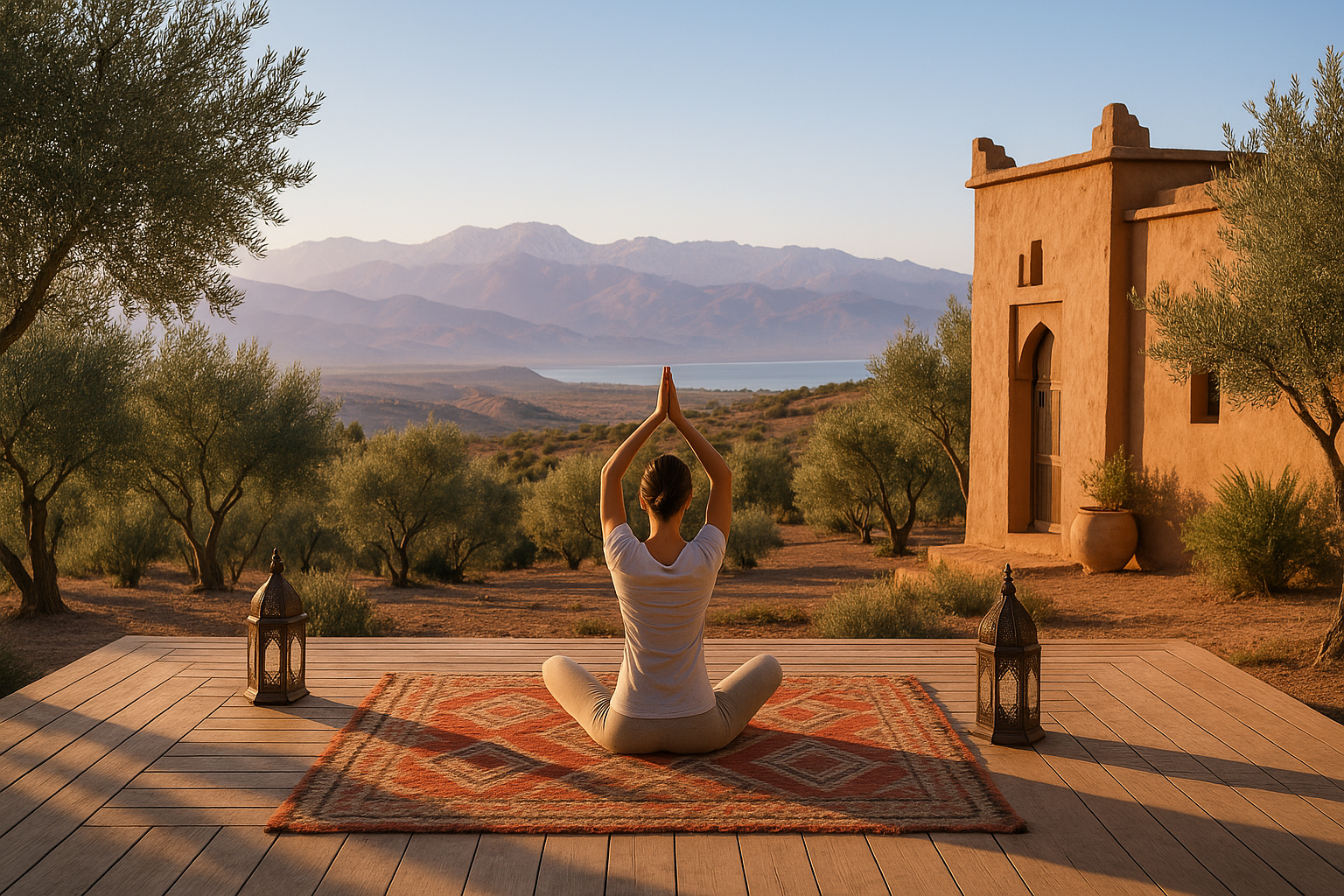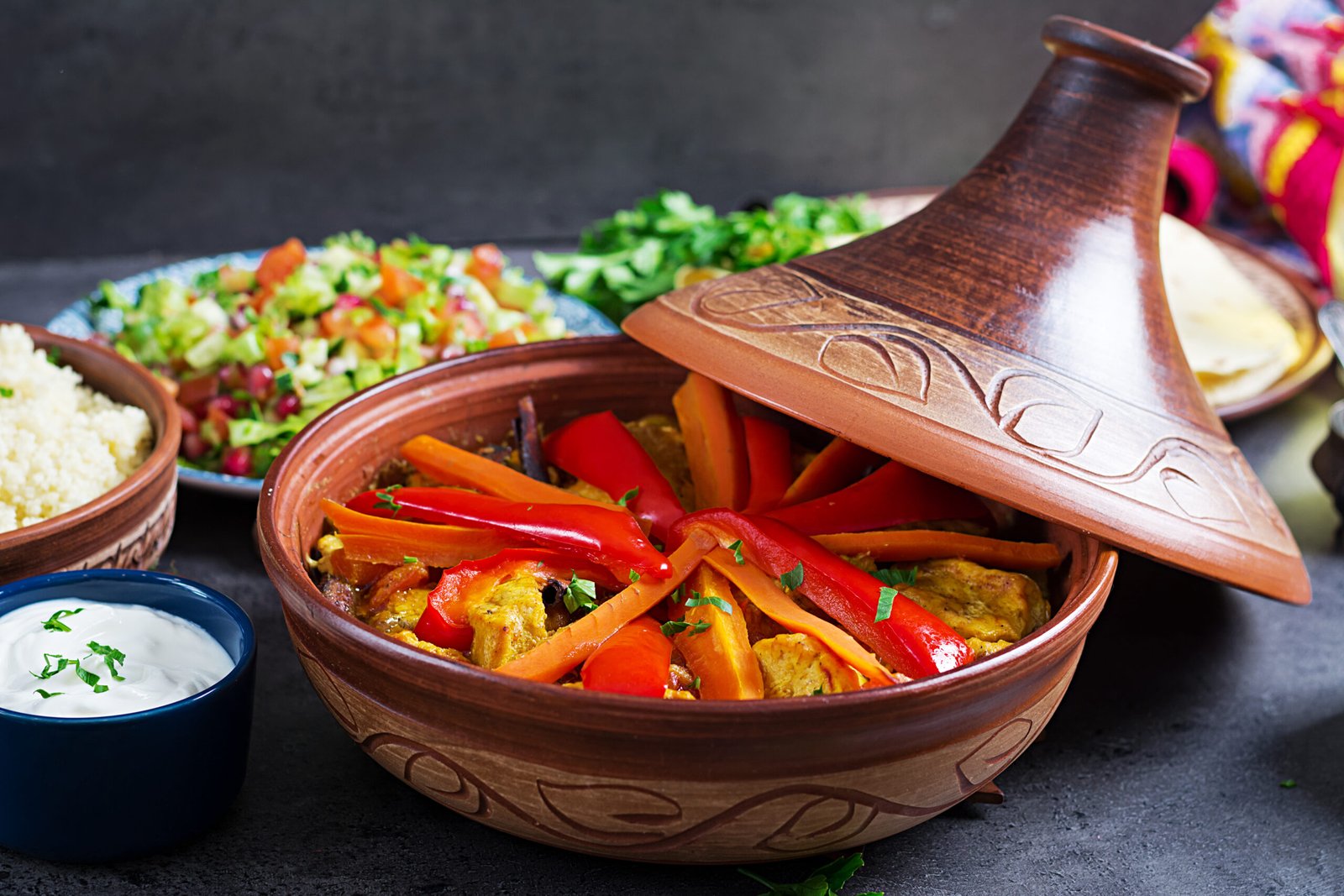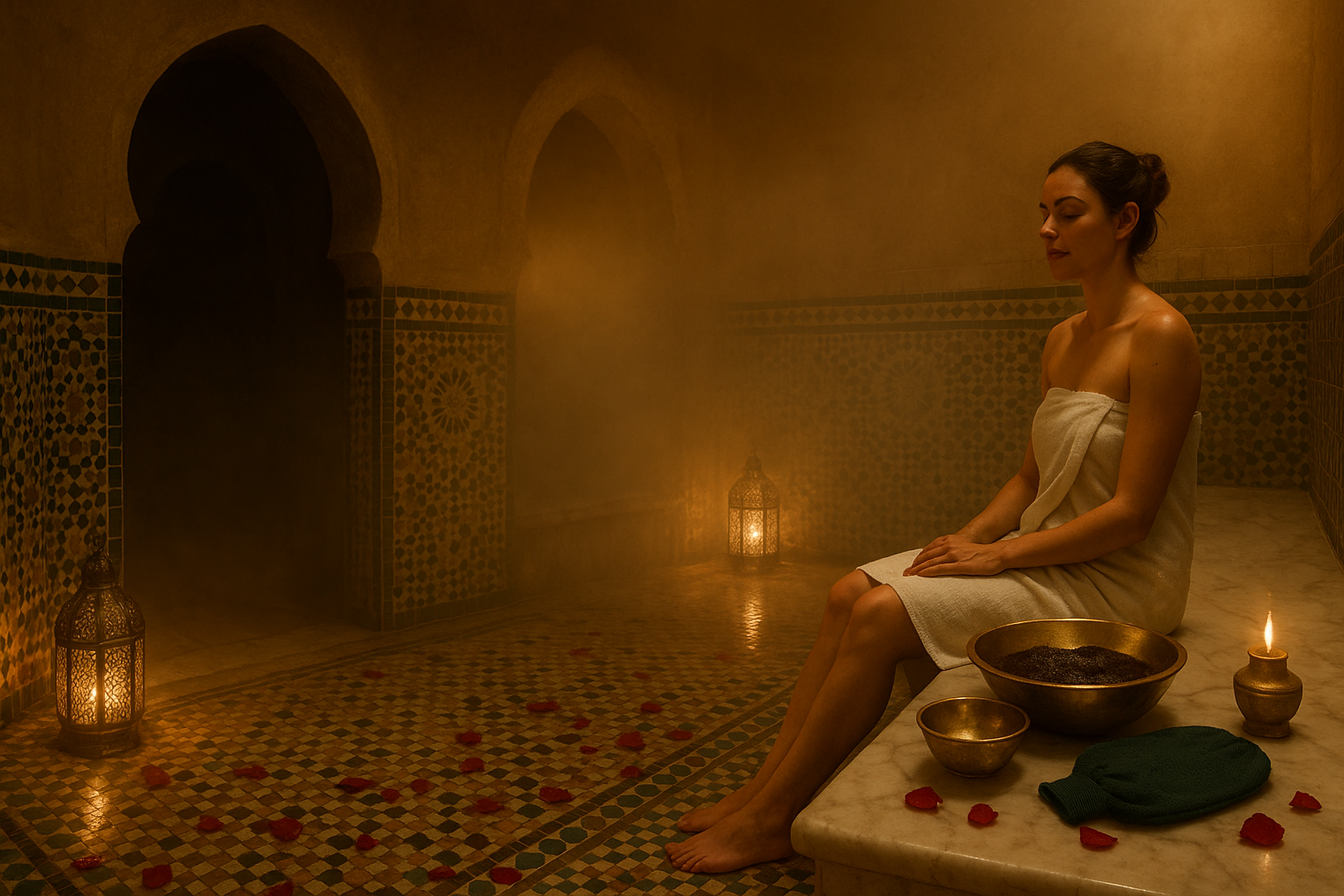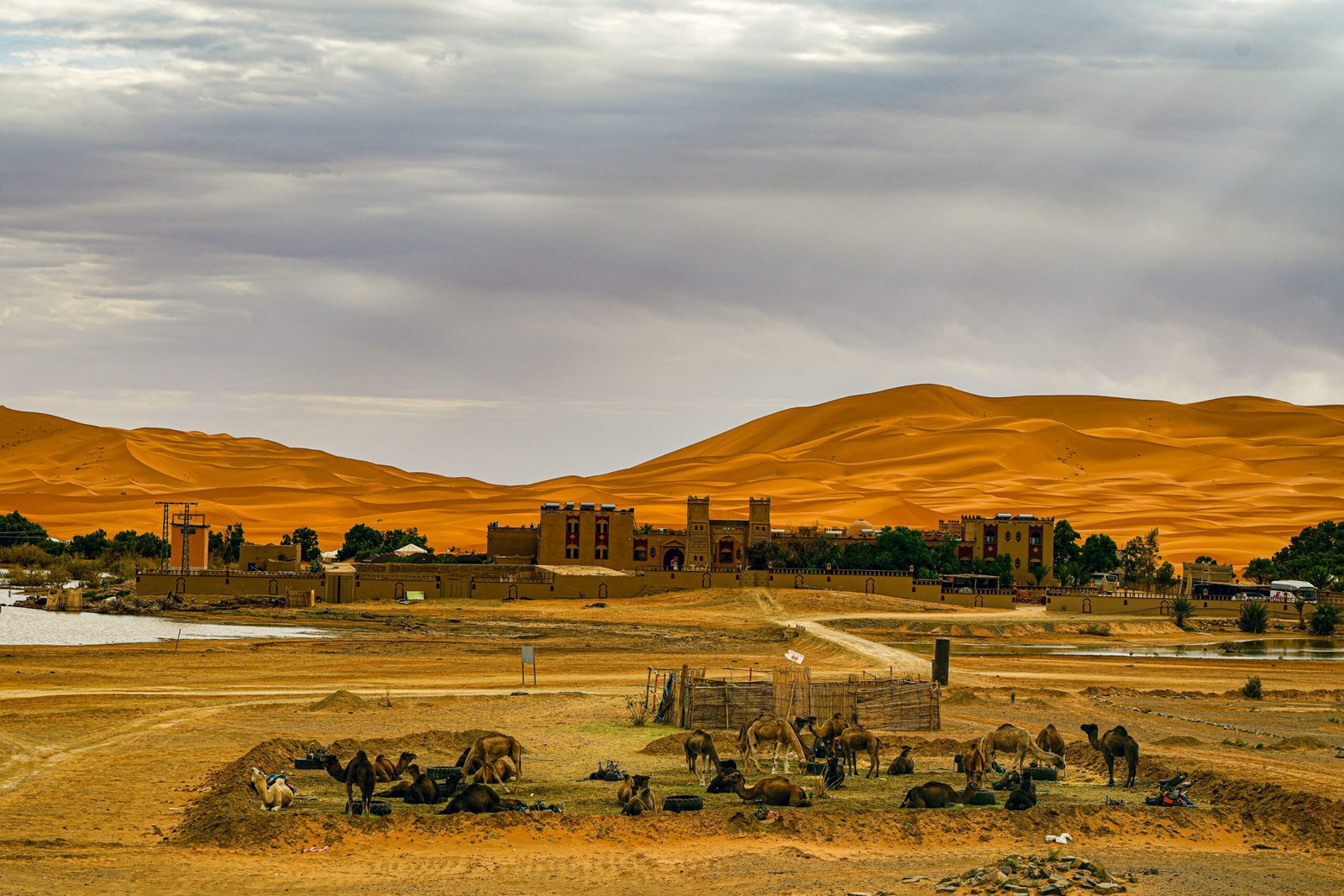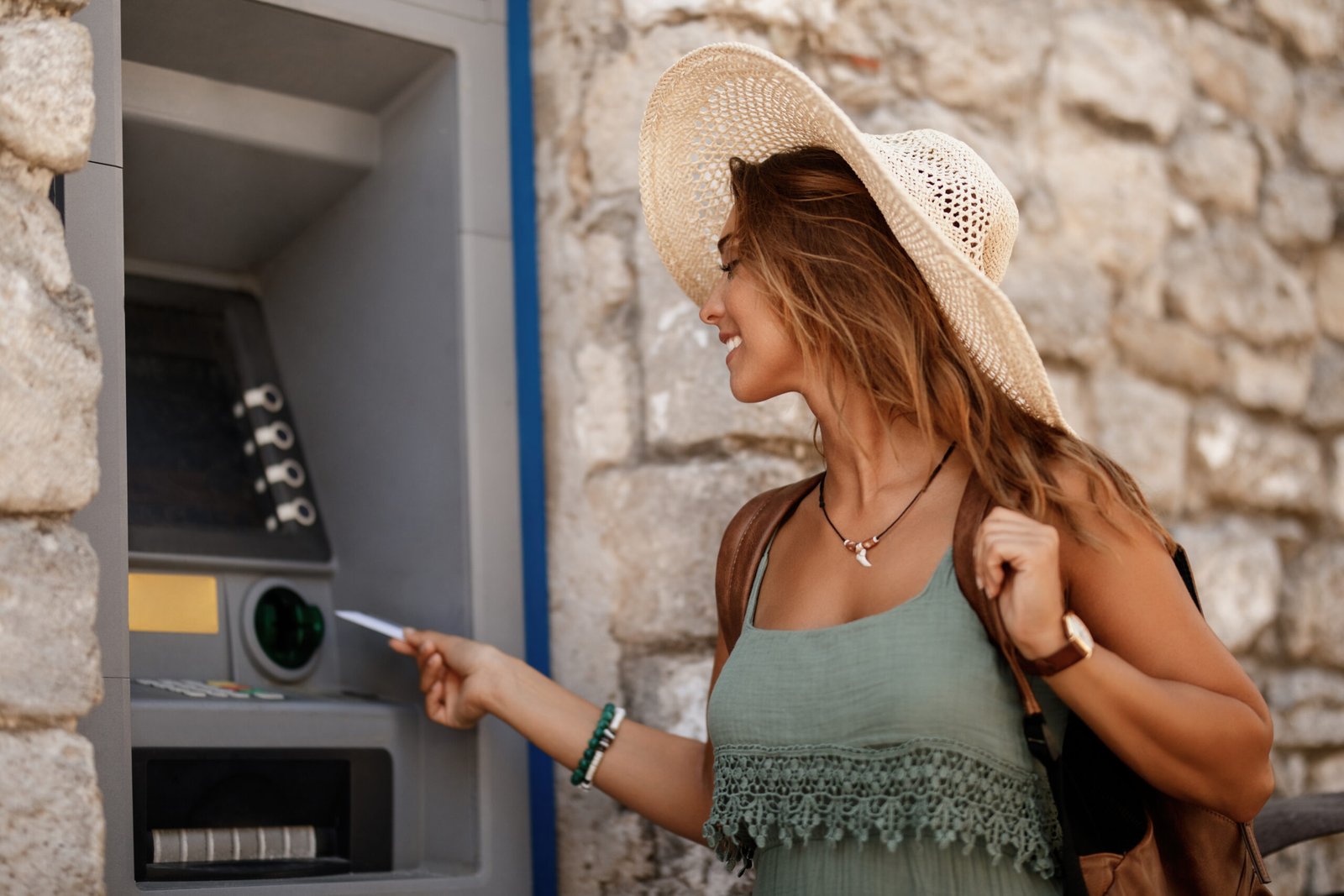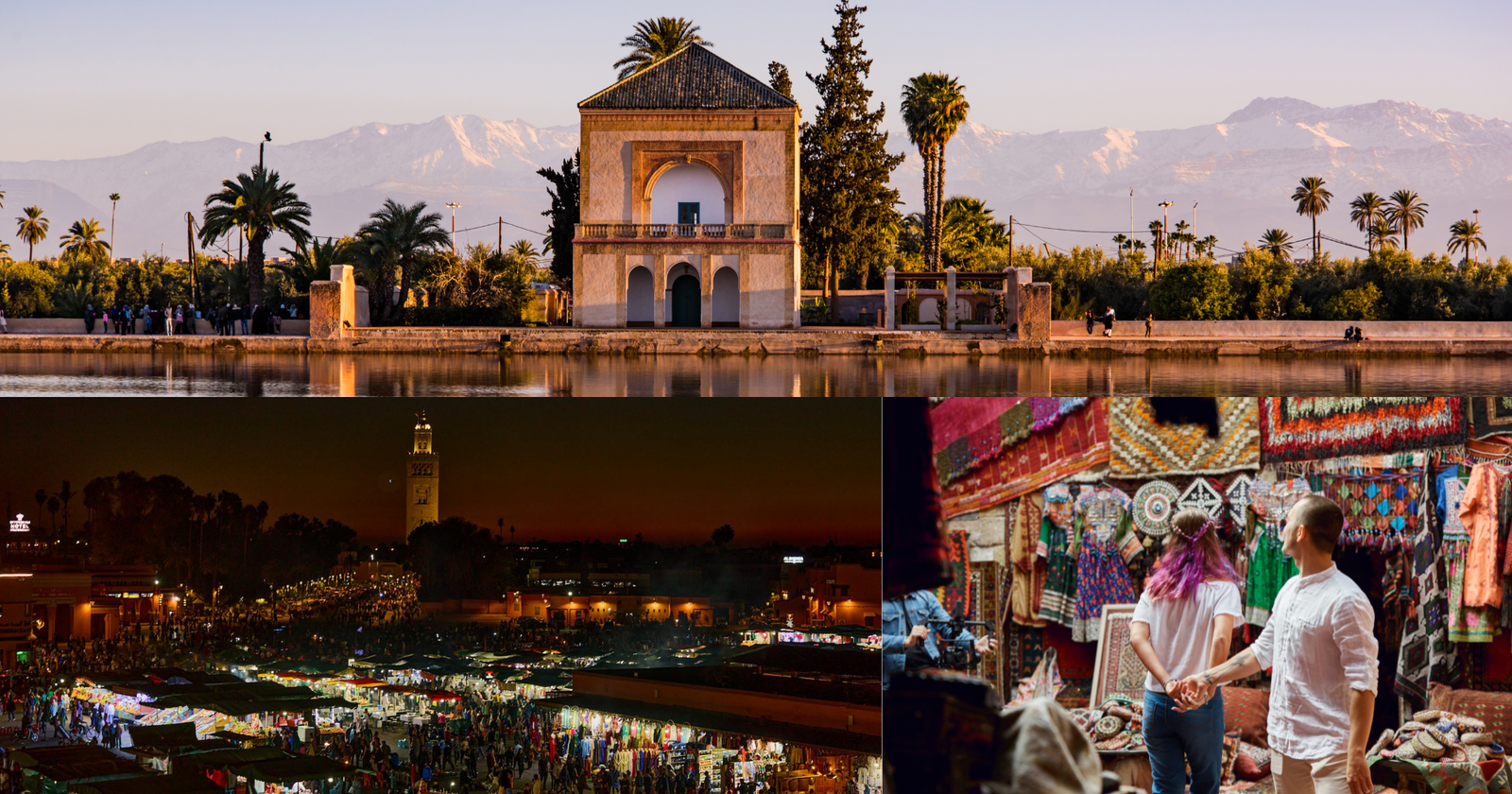Morocco Holidays are so much more than beautiful sights—they’re a full-on sensory adventure. The first thing that hits you isn’t what you see, but what you smell. Picture walking through Fez’s ancient medina, where the air is thick with a wild mix of leather from centuries-old tanneries, sweet cedarwood from carved doors, and the unmistakable scent of cumin and saffron drifting from hidden spice shops. Then, just as the call to prayer echoes off the stone walls around you, you realize you’re completely lost—in the best way.
So you’re thinking about Morocco holidays? Buckle up, because you’re in for something special. This place has everything—sleeping under a gazillion stars in the Sahara, hiking with Berber families in the mountains, the absolutely bonkers energy of Marrakech’s markets, and the super chill blue streets of Chefchaouen. But here’s the thing: Morocco can be a lot if you show up unprepared. Figuring out when to go, understanding the cultural stuff, staying safe, finding the real experiences instead of tourist traps—all of that matters way more than you’d think.
I’ve actually been there, done the whole getting-lost-in-the-medina thing, and I’m here to share what I learned. Whether you’re looking at Morocco vacation packages or planning to wing it solo, I’ve got practical advice for everything from daydreaming about your trip to actually navigating those crazy (but awesome) souks.
Table of Contents
- 5 Must-Do Experiences for Your Morocco Holidays
- Planning Your Morocco Holidays: Safety and Logistics
- Surviving the Medinas on Your Morocco Holidays
- Morocco Holidays Food Guide: What to Eat and Drink
- Morocco Holidays FAQ: Your Questions Answered
5 Must-Do Experiences for Your Morocco Holidays (Beyond Just Marrakech)
Sleeping Under a Million Stars in the Sahara Desert
Look, there’s something about standing in the Sahara at sunset that just makes you feel… small? In a good way? The dunes go from gold to orange to this deep purple, and it’s honestly surreal. You’ll probably ride a camel to get to the desert camps near Merzouga—and yes, everyone’s right, they’re super uncomfortable. Your butt will hurt. But it’s still pretty unforgettable. At night, the guides play traditional music around a campfire, and the sky? Holy crap, the stars. If you’ve only ever seen stars in a city, this will blow your mind.
Quick heads up: Even if it’s roasting during the day, nights can get freezing. Like, actually freezing. So pack layers! Also, sandstorms can happen between January and April, which sounds scary but is actually kind of dramatic and cool.
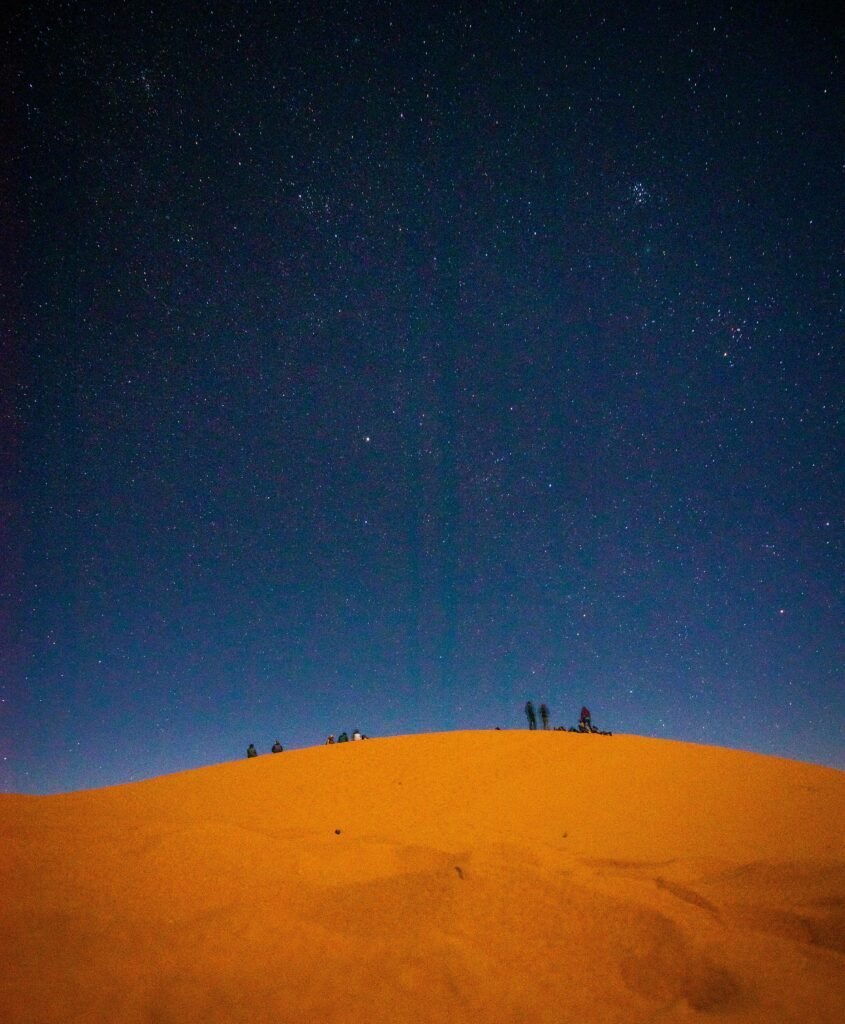
Hiking and Hanging with Berber Families in the Atlas Mountains
The Atlas Mountains are like Morocco’s total opposite vibe from the desert. You’re trekking through valleys with these traditional Berber villages, terraced gardens, walnut trees everywhere, and people who are genuinely welcoming—not just trying to sell you stuff. A lot of Morocco vacation packages now include homestays where you’ll actually eat with local families. Think amazing tagines, Berber omelets, and bread that’s baked in clay ovens right there. Plus, endless mint tea (seriously, so much tea).
If you’re into serious hiking, Mount Toubkal is North Africa’s highest peak and apparently a great challenge. But even just doing day hikes, you’ll get stunning views and real cultural connections.
The Blue Pearl: Chilling Out in Chefchaouen
After cities like Marrakech and Fez (which are basically sensory overload central), Chefchaouen feels like someone hit the chill button. Everything’s painted blue, it’s up in the mountains, and the whole vibe is just… relaxed. The guys trying to sell you stuff aren’t as pushy, you can actually wander around without a plan, and yeah, it’s super photogenic. But it’s genuinely beautiful, not just Instagram hype.
Spend your time getting lost in the blue alleyways, drinking coffee in quiet squares, and maybe buying some handicrafts without feeling like you’re in a negotiation battle. It’s the perfect breather during your Morocco holidays.
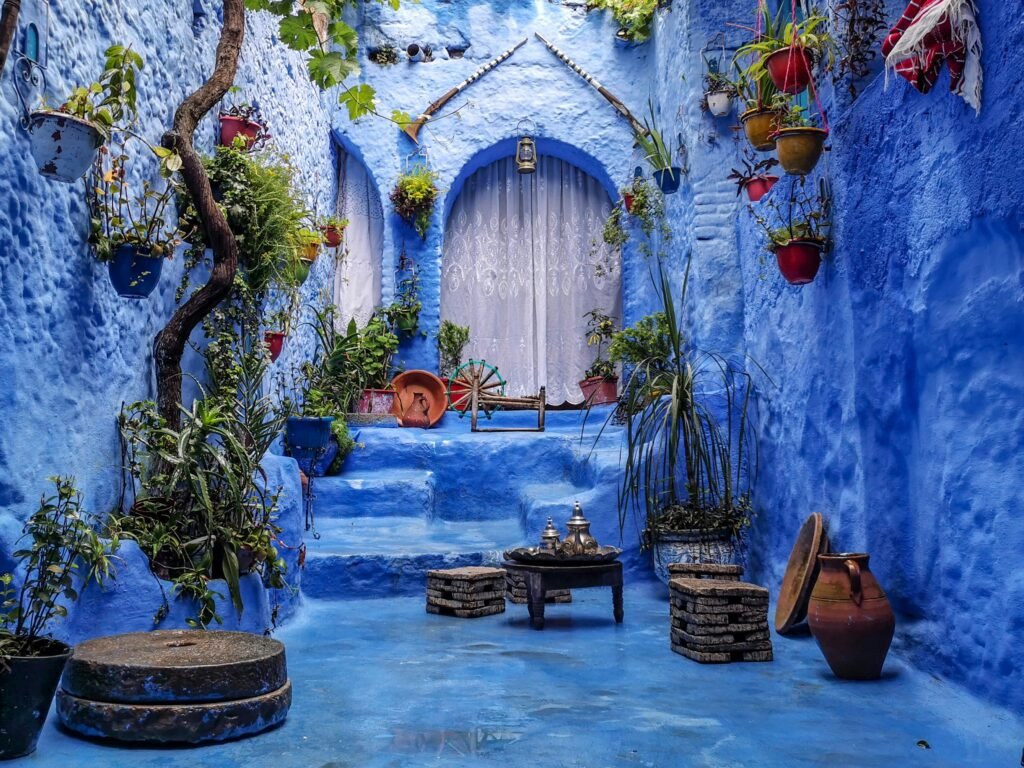
Stepping Back in Time at Volubilis and Aït Benhaddou
Morocco’s got some seriously cool historical sites that should definitely be on your Morocco holidays itinerary. Volubilis—these Roman ruins near Meknes—are super well-preserved and not overrun with tourists like European ruins tend to be. You can actually look at the floor mosaics up close and walk around ancient columns without fighting through crowds.
Then there’s Aït Benhaddou, this fortified village thing (they call it a ksar) on the edge of the Sahara. It’s all traditional clay architecture built into a hillside, and you’ve probably seen it in movies—Game of Thrones, Gladiator, that kind of thing. It looks incredible, especially at sunset.
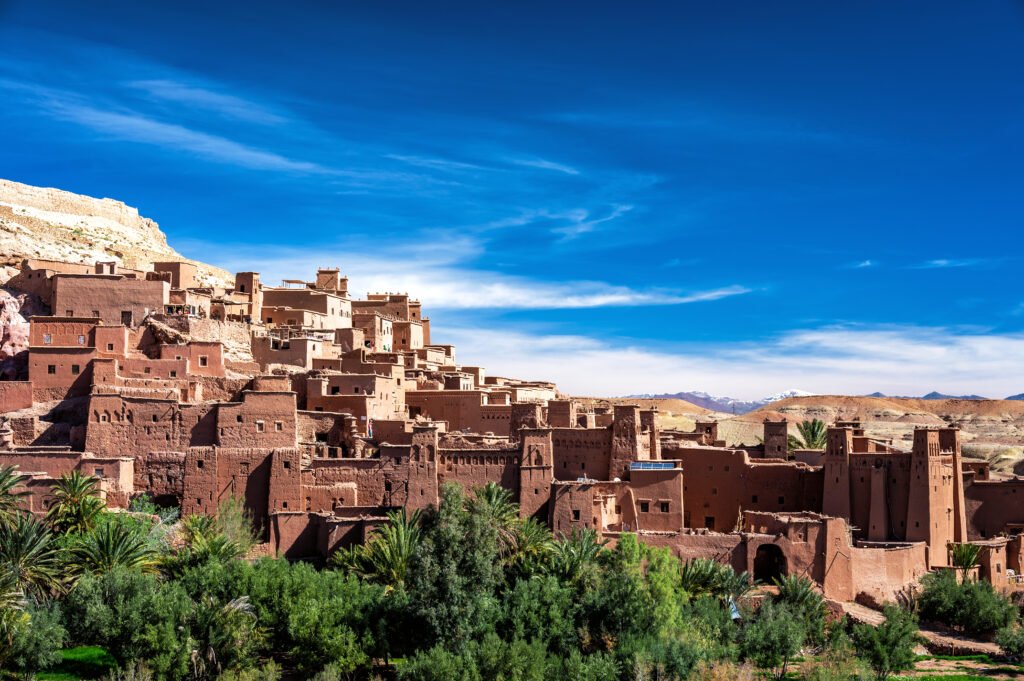
Planning Your Morocco Holidays: Safety and Essential Tips
Is Morocco Safe for Women and Solo Travelers?
Okay, this is the question everyone asks when planning Morocco holidays, and I’m gonna give you the honest answer. Morocco is generally safe—like, you’re not going to get mugged at knifepoint or anything—but harassment and unwanted attention, especially if you’re a woman, are definitely things you need to be mentally ready for.
Dressing modestly (covering your knees and shoulders) isn’t just about respecting the culture—it actually does cut down on unwanted attention. Learn to say “La, shukran” (No, thank you) and just keep walking. You don’t owe anyone a conversation. A lot of women say they felt safer hiring a guide in the big cities, especially Marrakech and Fez.
The main thing is just being prepared and looking confident. Know where you’re headed, walk like you own the place, and if something feels off, trust that feeling.
Getting the Cultural Stuff Right on Your Morocco Holidays
Morocco’s a Muslim country, so there are some basics worth knowing before your trip. The call to prayer happens five times a day—it’s actually really beautiful once you get used to it. If you’re there during Ramadan, a lot of restaurants close during the day while people are fasting, and it’s respectful not to eat or drink in public.
You might notice some traditional cafes are mostly men (gender separation thing), though touristy places are more mixed. Oh, and in the markets? Fixed prices basically don’t exist. Bargaining is expected—it’s not rude, it’s just how things work. Start at about half of what they’re asking and meet somewhere in the middle.
Money Matters: Budgeting Your Morocco Holidays
Here’s some good news: Morocco holidays won’t destroy your bank account. Compared to Europe, it’s actually pretty affordable. Most people spend around $1,500 per person for two weeks, covering hotels, food, transportation, activities—the whole deal. Obviously, if you’re staying in fancy riads and doing luxury stuff, it’ll cost more.
The currency is the Moroccan dirham (MAD). ATMs are easy to find in cities, but you’ll need cash for markets, smaller restaurants, and anywhere rural. Credit cards work in touristy spots but definitely aren’t everywhere. If you’re booking Morocco vacation packages, a lot of that might be included, which makes budgeting way easier.
Surviving the Medinas on Your Morocco Holidays
Marrakech’s Djemaa el-Fnaa Square Is Absolute Madness
Marrakech’s main square is Morocco cranked up to eleven—and honestly, one of the highlights of any Morocco holidays experience. During the day, there are snake charmers, henna artists, and street performers everywhere. At night, it turns into this massive outdoor food court with storytellers, acrobats, and just… so much happening at once.
Here’s my game plan: First, just watch. Find a rooftop cafe and observe from above—you’ll appreciate it way more. Second, get really good at saying no. Everyone and their cousin will try to get your attention—guides, artists, snake handlers (yes, really). A firm “La, shukran” while you keep moving works way better than trying to explain yourself. Third, bargaining is part of the fun. Start at half price for souvenirs, keep it friendly, and be ready to walk away.
The markets spreading out from the square are intentionally maze-like. You will get lost—just accept it as part of the adventure. Keep your valuables close and stick to busier areas.
Fez’s Medina Is Even More Confusing (and a Bit Sketchier)
Fez’s medina makes Marrakech look simple. It’s one of the world’s biggest car-free areas and honestly feels like you’ve time-traveled to medieval times. It’s fascinating, but it’s also got a reputation for being a bit dodgy. Pickpocketing happens, and some of those narrow, empty alleyways can feel genuinely unsafe, especially after dark.
My advice? Hire a licensed guide for at least your first time exploring. It’ll cost you like $20-30 for a half-day, and it’s totally worth it for both safety and actually understanding what you’re looking at. Stay on main streets, keep your stuff hidden, and if an alley gives you bad vibes, just don’t go down it.
Essaouira: Your Coastal Chill-Out Spot
If the big cities get to be too much (and they will), head to Essaouira. This coastal town is so much more relaxed—way fewer aggressive sellers, a medina you can actually navigate without a guide, and amazing seafood at the harbor. It’s big for windsurfing and kitesurfing because of the constant Atlantic winds. The whole vibe is different from inland Morocco—more Portuguese influence, artsy community, just easier to breathe. It’s a perfect addition to Morocco holidays if you need a breather.
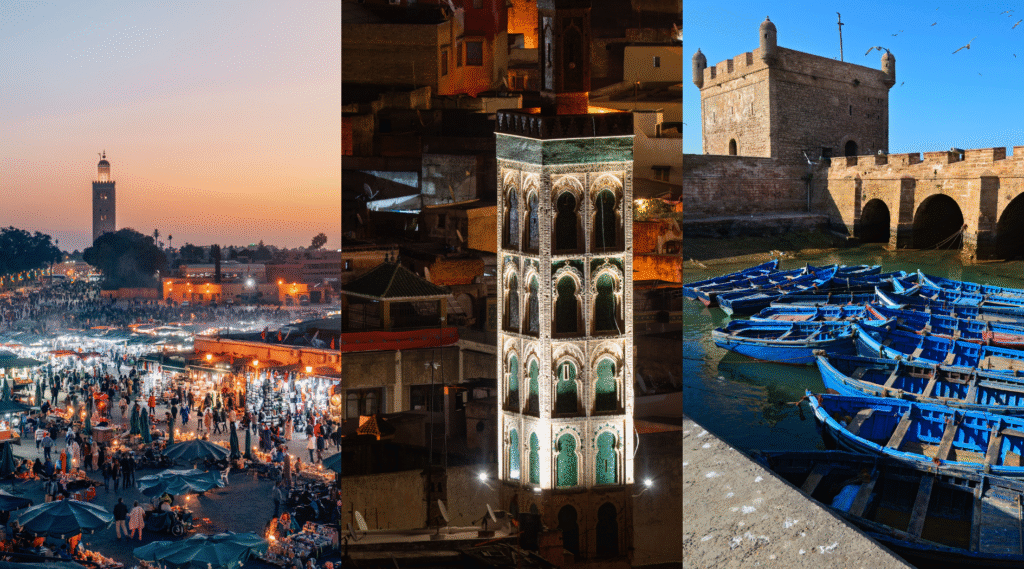
Morocco Holidays Food Guide: What to Eat and Drink
Tagine, Couscous, and That Crazy Sweet Tea
Okay, so Moroccan food totally surprised me in the best way during my Morocco holidays. Tagine—named after the cone-shaped pot it’s cooked in—became my obsession. It’s this slow-cooked stew with meat (usually lamb, chicken, or beef), fruits like dates or apricots, olives, preserved lemons, and all these spices like saffron, cumin, and cinnamon. It’s tender, it’s complex, it’s amazing.
Couscous is traditionally a Friday thing—steamed semolina topped with veggies and meat in this flavorful broth. Total comfort food.
And mint tea? It’s basically Morocco’s national drink. There’s a whole ceremonial way of pouring it—the higher the teapot, the more respect you’re showing. Fair warning: it’s incredibly sweet. Like, borderline ridiculous. You’ll either get addicted (guilty) or stick to coffee.
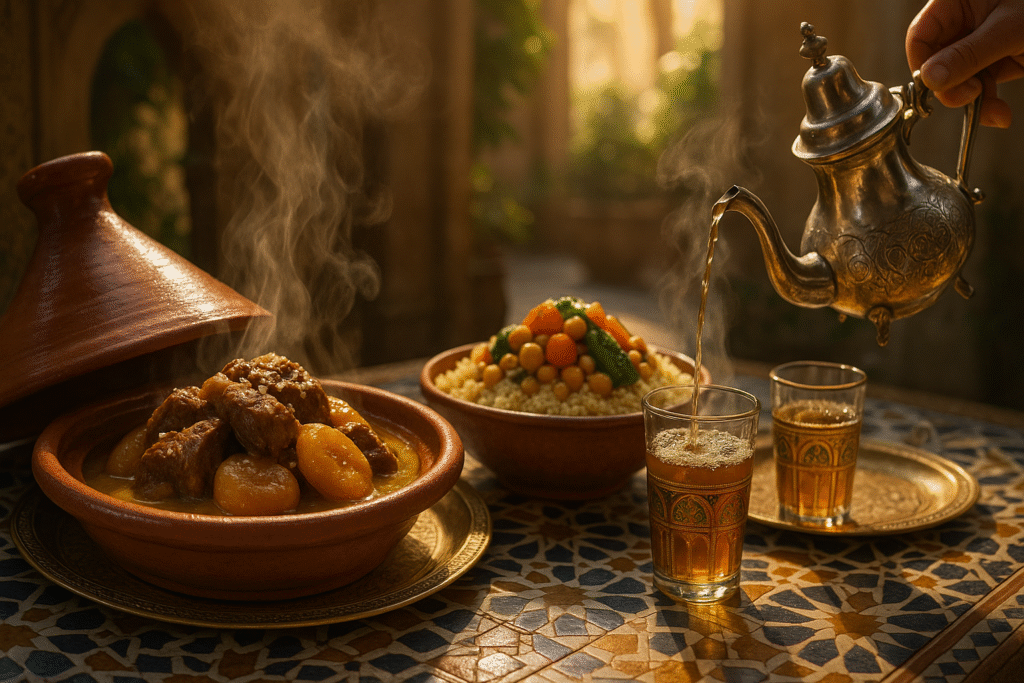
Street Food: Proceed with Caution
The street food stalls, especially in Djemaa el-Fnaa, look super tempting but… yeah, they can make you sick. My rule: if your guide or hotel recommends a specific vendor, go for it. Look for places with lots of turnover—food that’s constantly being cooked and served is safer than stuff sitting out.
Want the best souvenir from your Morocco holidays? Take a cooking class. Learning to make tagine, Moroccan salads, and pastries gives you skills you can actually use at home, plus you learn cultural stuff you wouldn’t get otherwise.
Morocco Holidays FAQ: Your Questions Answered
When’s the best time to visit Morocco?
Spring (March–May) and fall (September–November) are your sweet spots for Morocco holidays. Weather’s nice, crowds are manageable, and prices are usually better than summer. Summer gets brutally hot, especially in the desert and Marrakech. Winter’s not bad during the day, but nights get super cold in the mountains and desert. The best time to visit Morocco really depends on what you want to do, but those shoulder seasons are hard to beat.
What language do people speak?
Arabic’s the main one, but French is everywhere, especially in cities and touristy areas. Up north, you’ll hear Spanish because of how close Spain is. English is getting more common in hotels and restaurants, but learning a few Arabic or French phrases will definitely help (and people appreciate the effort).
Are Morocco holidays expensive?
Nope, Morocco holidays are actually pretty affordable. You can do a comfortable two-week trip for around $1,500 per person—that covers your hotel, food, transportation, activities, everything. Budget travelers can do it cheaper with hostels and street food, and there’s plenty of luxury stuff if you want to splurge.
Do I need a visa for Morocco holidays?
If you’re from the US, Canada, EU, UK, or Australia, you can just show up and stay for 90 days without a visa. Always double-check for your specific country before booking, though, since rules can change.
What should I pack for Morocco holidays?
Modest clothing is key—cover shoulders and knees. Comfy walking shoes for those cobblestone streets, layers because temperatures fluctuate like crazy, and sun protection. Women, bring a lightweight scarf for mosques or more conservative areas. Also: a small daypack, hand sanitizer, and maybe some anti-diarrheal meds just in case.
Making Your Morocco Holidays Happen
Morocco holidays are a study in contrasts—ancient and modern, chaotic and peaceful, challenging and totally worth it. The secret to having an amazing trip is just being prepared: know the cultural expectations, brace yourself for the intensity of the markets, and stay flexible when things inevitably go sideways (because they will).
Ready to make your Morocco holidays happen? Here’s what to do:
- Book flights early: Use sites like Skyscanner to compare prices to Marrakech, Casablanca, or Fez
- Get travel insurance: SafetyWing or World Nomads cover adventure activities
- Check out Morocco vacation packages: If planning feels overwhelming, let someone else handle the logistics
- Join travel forums: Get current tips from people who’ve actually been
Whether you’re standing in front of Chefchaouen’s blue gates, sipping tea in a Sahara camp, or successfully haggling for a carpet in Marrakech (and feeling like a boss), Morocco holidays will challenge you and amaze you in equal measure. Roll with the chaos, respect the culture, and get ready for a trip that’ll genuinely change how you see the world.
Trust me, it’s worth every overwhelming, beautiful, confusing minute.

